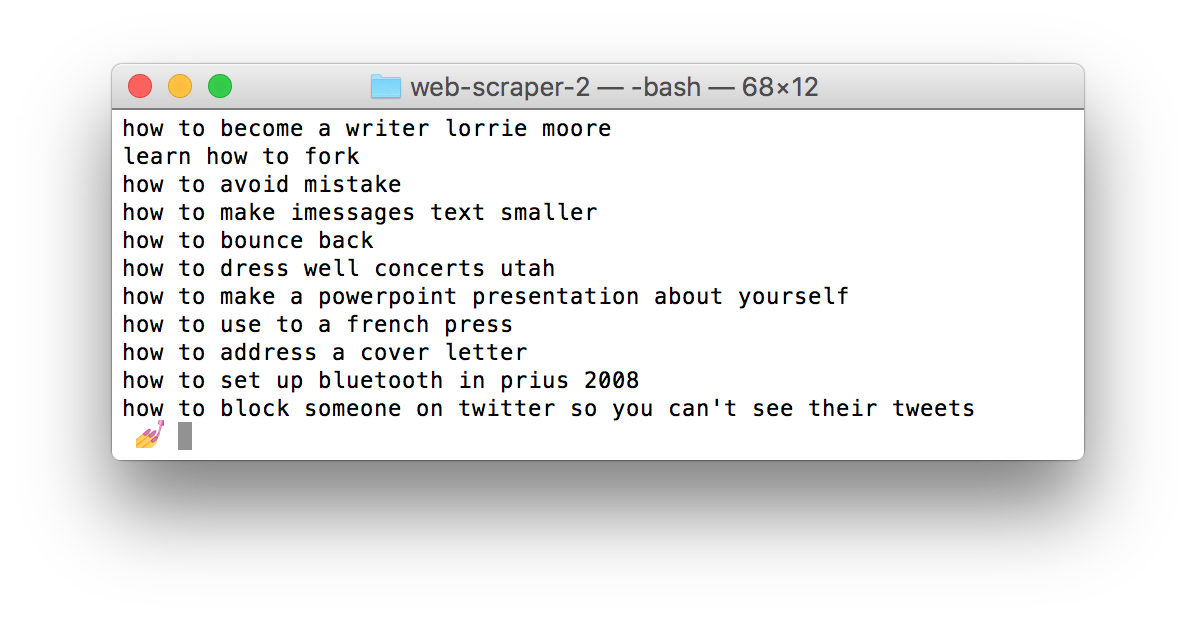 I use Google to search for answers to questions I don’t want to ask a human being. While most of my searches are done out of necessity (“how to use git no deep shit”) or urgency (“ruby’s nyc address”), I also turn to Google to answer questions I’m too embarrassed to ask my friends. Our Google searches therefore reveal a side of us that we may not want shared with the public.
I use Google to search for answers to questions I don’t want to ask a human being. While most of my searches are done out of necessity (“how to use git no deep shit”) or urgency (“ruby’s nyc address”), I also turn to Google to answer questions I’m too embarrassed to ask my friends. Our Google searches therefore reveal a side of us that we may not want shared with the public.
I decided to make a website exploring how YouTubers attempted to answer some of the questions I asked Google in 2014. See the site here.
I started by downloading my entire Google search history, spanning the years 2013-2017. The zip file contains some ugly JSONs, so using Python I generated lists of searches organized by year. Then I programmatically cleaned up the lists to weed out Google Map & Flights searches. This was the result for 2013, for instance:
Next, I filtered the Google searches down to all the instances that included the words “how to.” I wanted to get a snapshot of what I was trying to learn from the internet in that particular year. Some examples from 2014:
Then I wrote a Python script that takes that array of google searches and programmatically searches for them on YouTube, downloading whatever video tutorial is the first result. I used selenium + webdriver + PhantomJS to browse and scrape the videos for me. You can see my full code here.
When I started this project, I knew I wanted to explore the culture of YouTube tutorials using my own searches as a starting point. I wanted to know how different online communities were attempting to answer and work through my questions.
What I found interesting was the ways in which my questions were interpreted. A simple question “how to bounce back” resulted in a trampoline how-to video. A question about “how to get over a breakup” resulted in a makeup tutorial for post-breakups (side note: I had no idea that there is a huge subculture of makeup tutorials on YouTube, complete with its own norms and signifiers). If I had searched on Reddit or WebMD, for instance, the results would have been similarly a product of the language of the online community.

